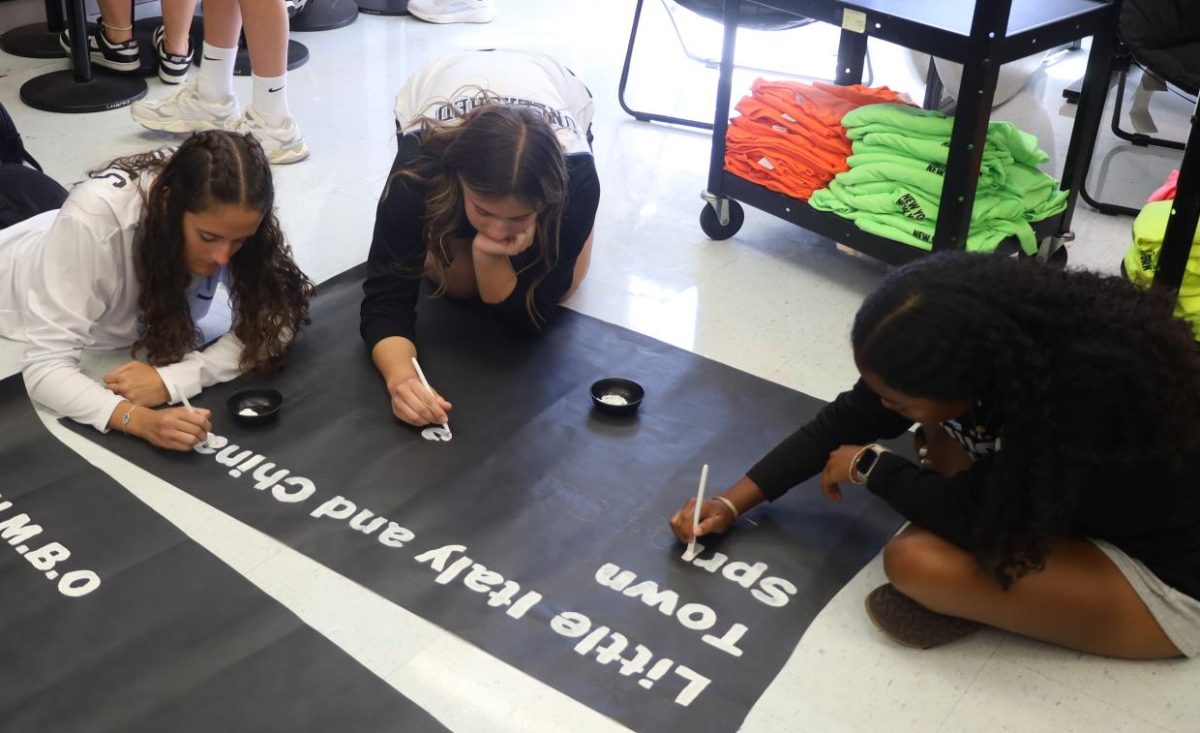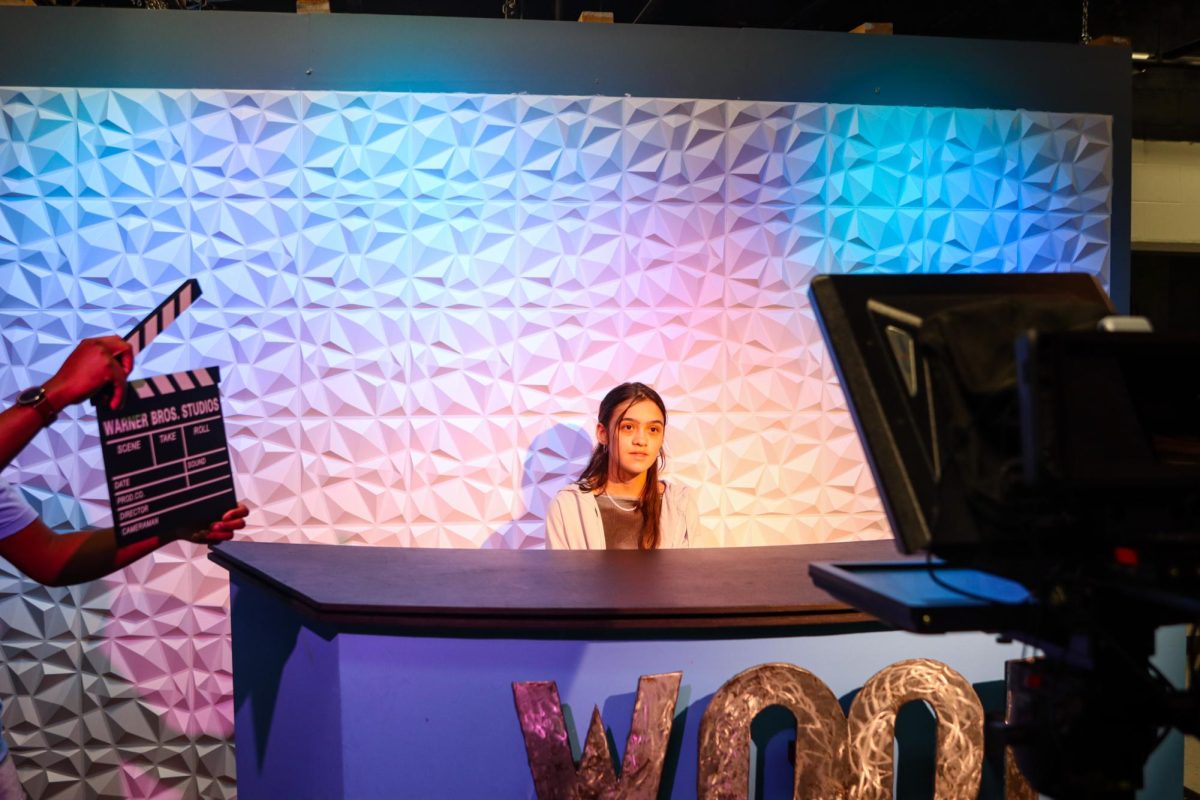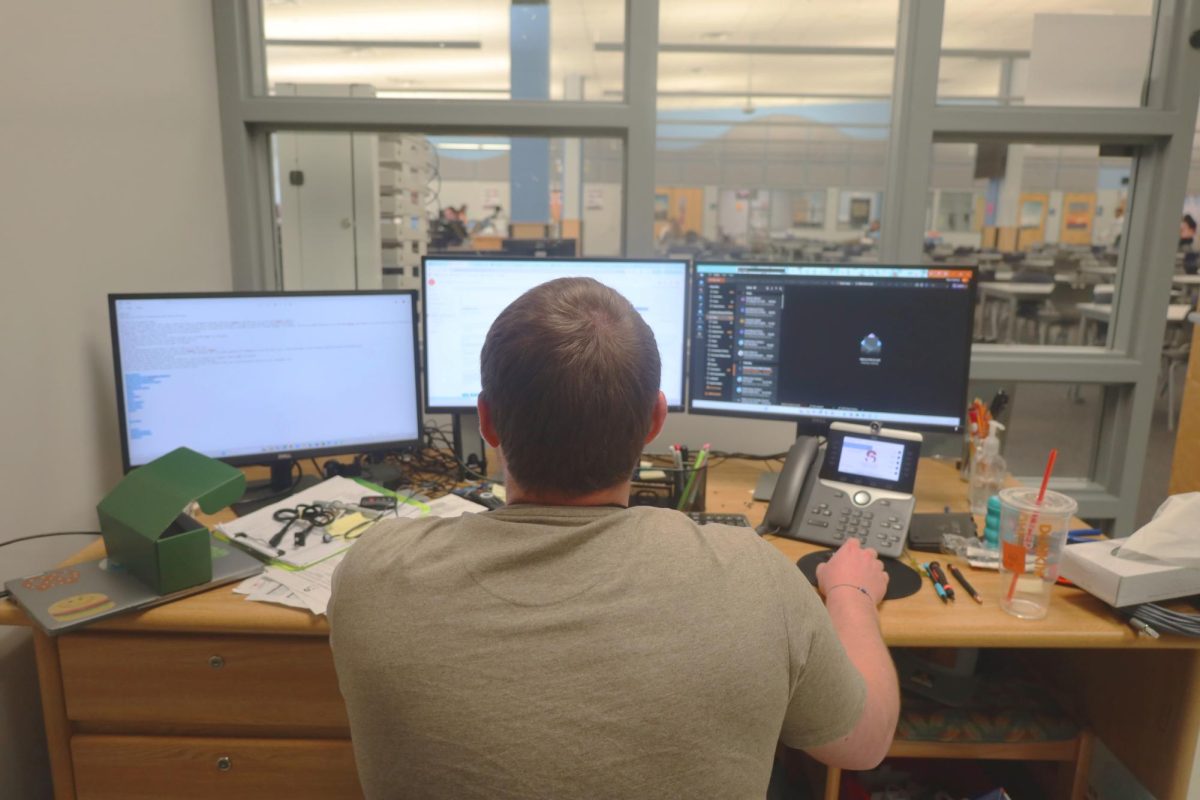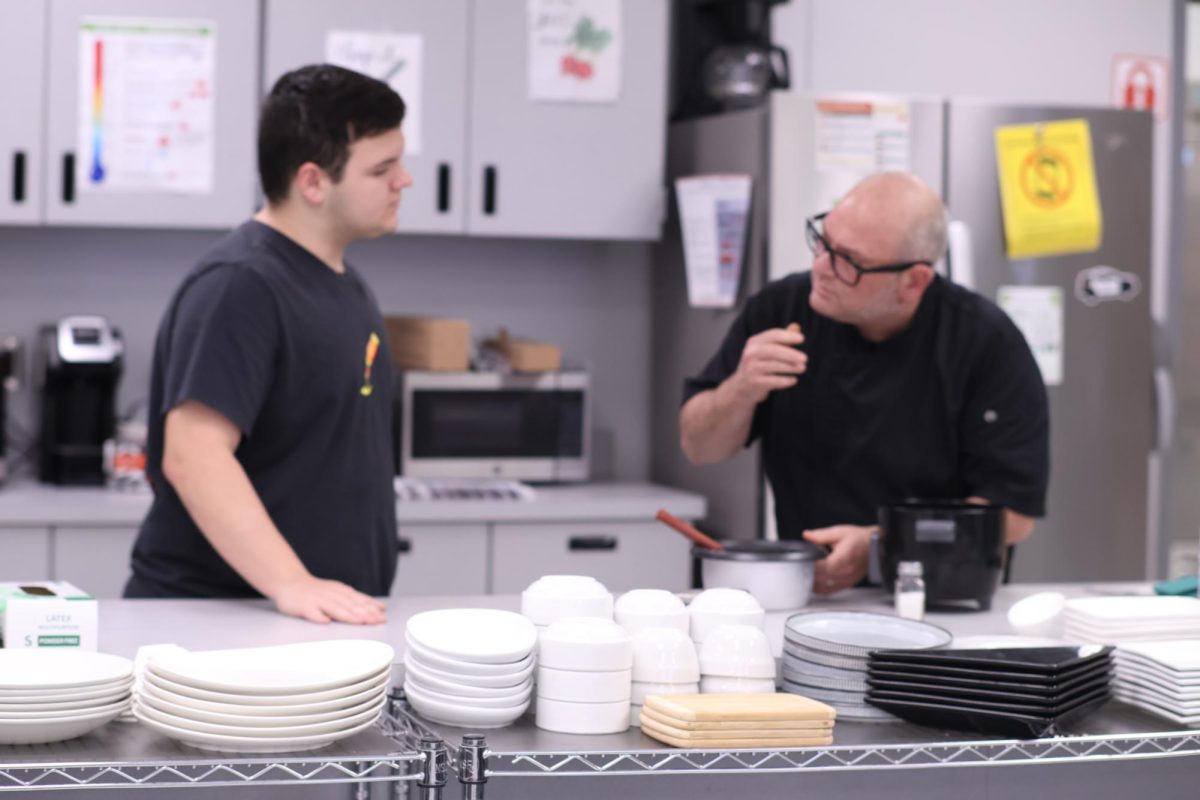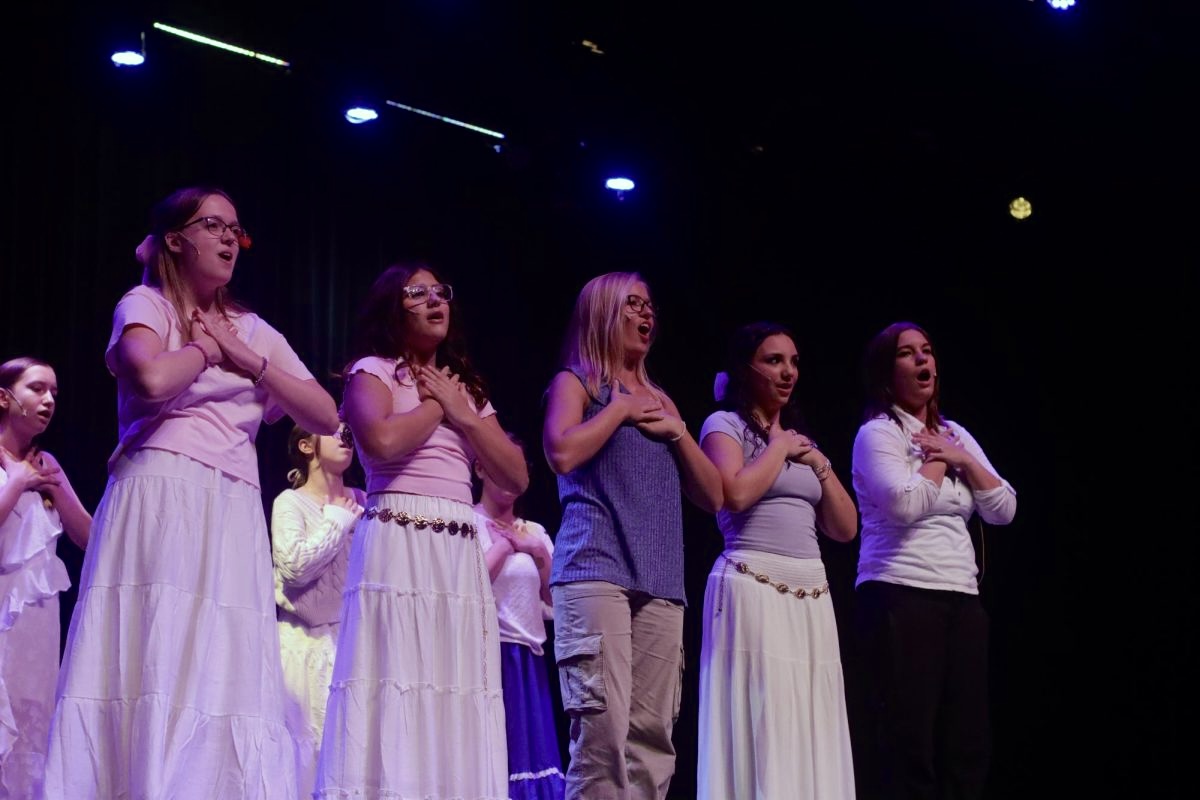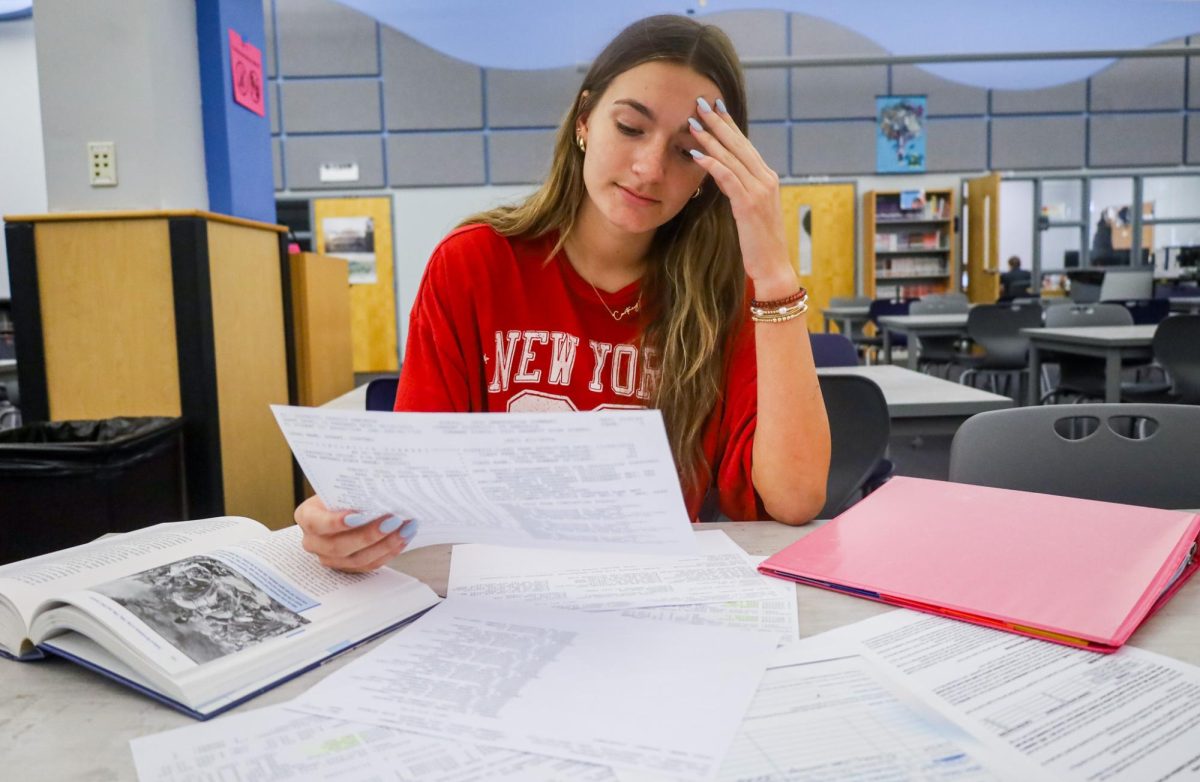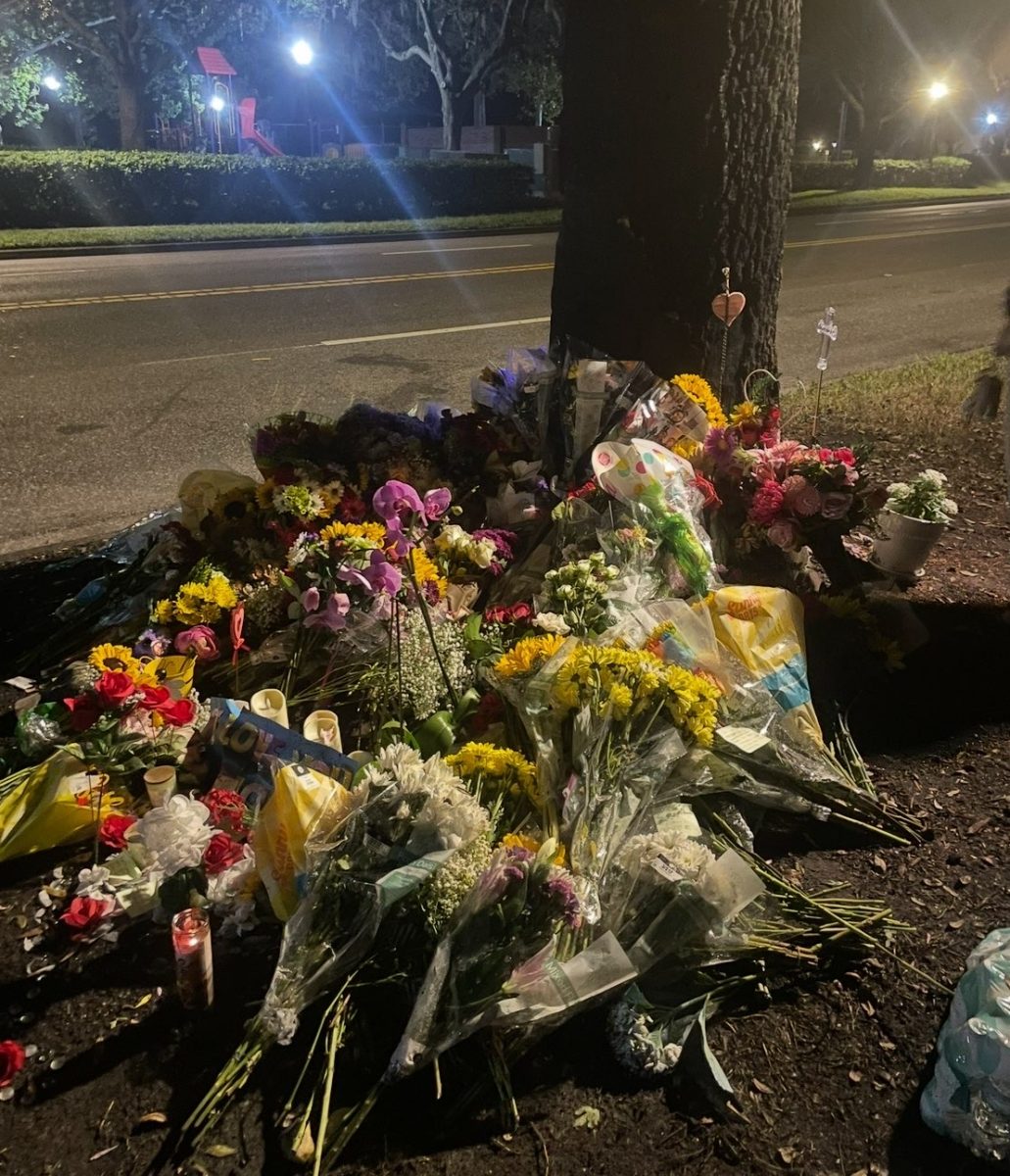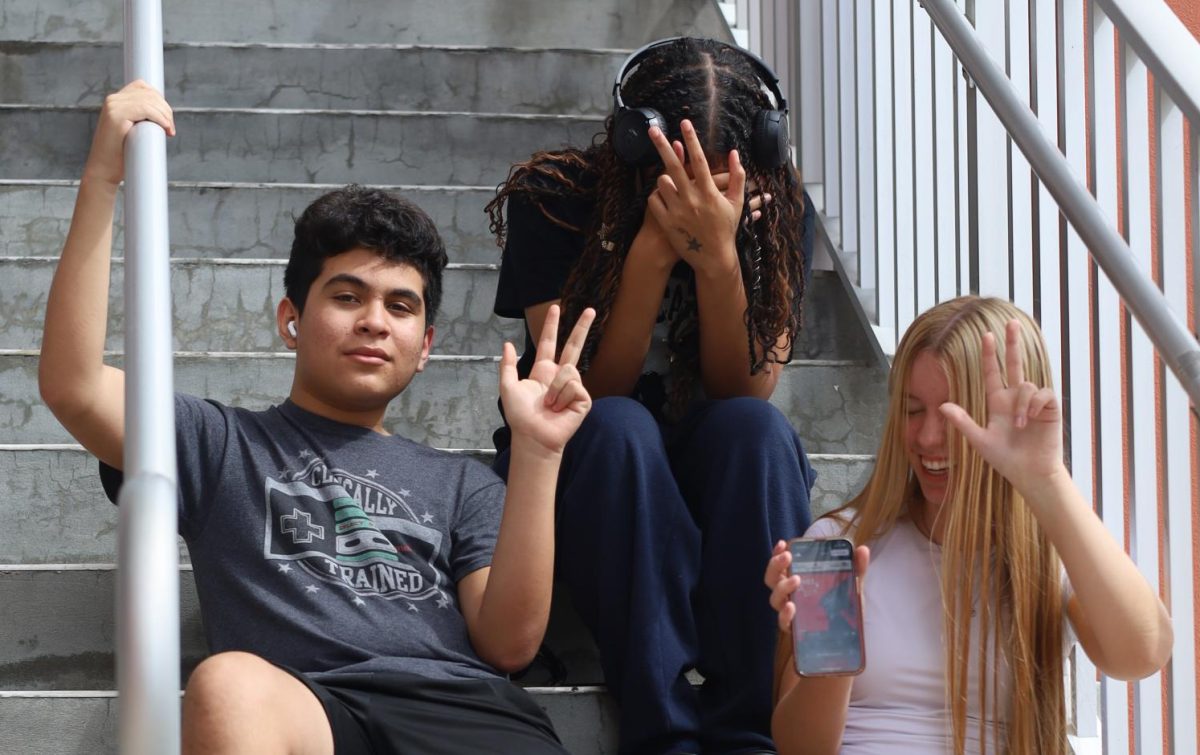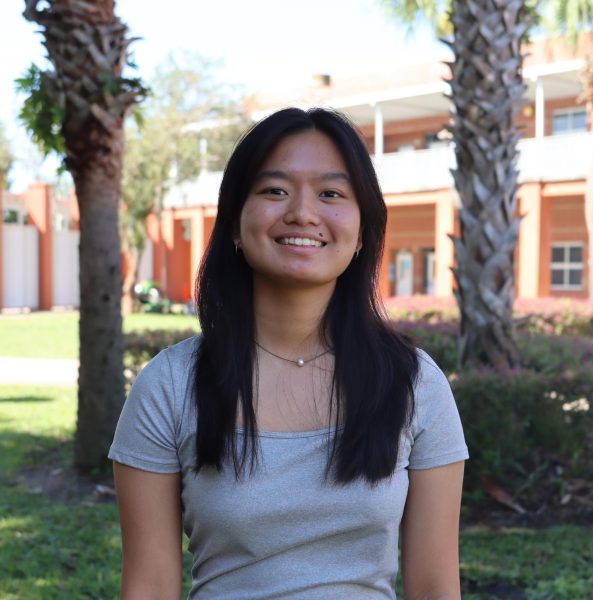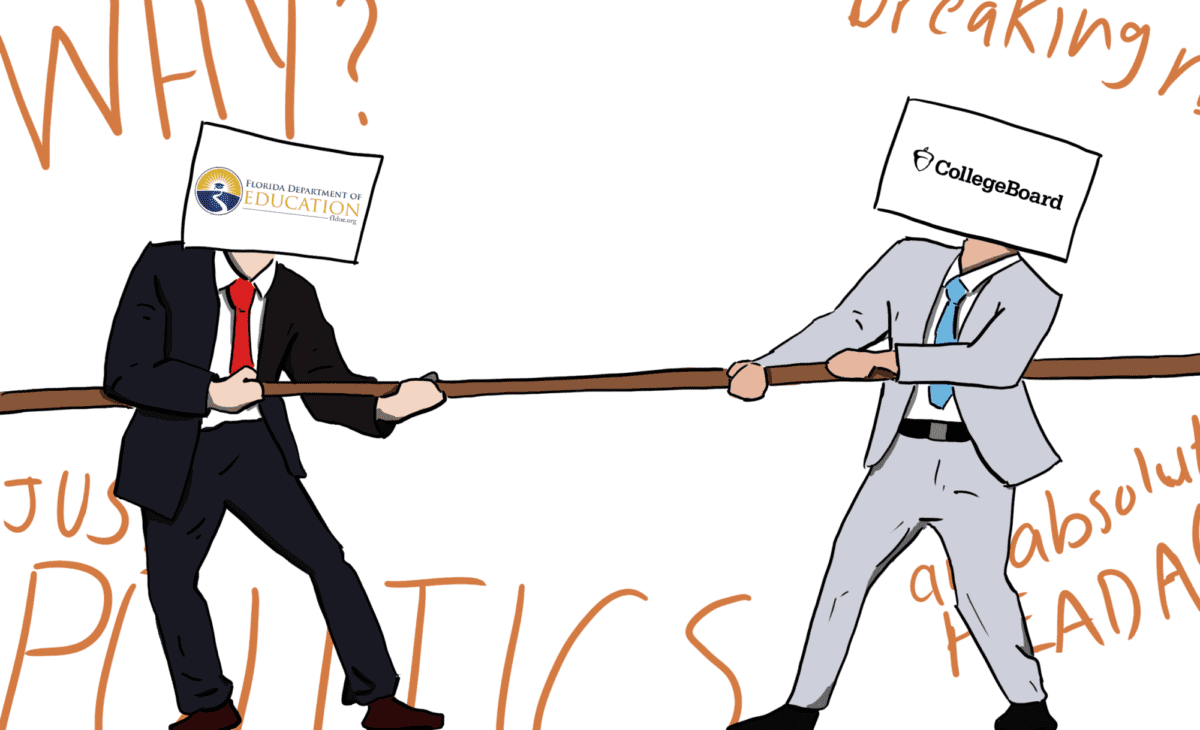
When she received her school schedule on Aug. 1, junior Macy Drewry was ecstatic to see AP Psychology listed as her fourth period, a class she had been waiting to take since middle school. Two days later, news broke that Florida school districts were no longer allowed to offer AP Psychology for college credit, leaving Drewry confused and scrambling to find another class.
“My brain couldn’t comprehend how a class could literally be taken away after already having my schedule in Skyward,” Drewry said. “It’s difficult for me to not regret taking the course last year when the class was still available.”
After multiple anxious correspondences with her counselor, Drewry managed to fill the hole in her schedule, disappointed in the ban but optimistic about her new classes.
Then, four days into the school year, AP Psychology was back. An update from Florida Commissioner of Education Manny Diaz Jr. clarified that the district could teach the class, albeit with more county involvement and revised teacher training.
For Drewry though, it was too late. The uncertainty surrounding the course made her wary, and she chose to stick with her current schedule.
“I’m definitely glad that the course is back,” Drewry said. “But now it’s very overwhelming and stressful since this whole time I’ve been getting situated in a different class, and I only had a [few] days to make a decision.”
The controversy started on Aug. 3, when College Board released an official statement announcing Florida’s restrictions on gender identity and sexuality education “effectively banned” the AP Psychology course. Negotiations with the Florida Department of Education, which had started back in June, ultimately failed to produce a mutual solution. In accordance with recently passed laws like the “Parental Rights in Education” bill, the FLDOE requested College Board to remove any parts of their course pertaining to sexual education, a move College Board viewed as an attack on the AP label.
“To be frank, I had prepared for [the ban] all summer,” AP Psychology teacher Heather Douglas said. “While certainly hoping it didn’t happen, I had a feeling it was going to take that direction considering the political climate and the other choices that they were making during legislation.”
The AP Psychology ban was only the latest casualty in a recent series of confrontations between the FLDOE and College Board, triggered by Florida legislature’s increasing restrictions on education. Earlier this year, the FLDOE rejected the College Board’s curriculum for their pilot-phase AP African American Studies course, citing lessons on intersectionality, critical race theory and Black queer studies as violating state law. The College Board released a modified course framework a month later, noticeably removing the specific controversial topics Desantis and his administration targeted. Nationwide criticism from Black leaders and activists blasted the College Board for “giving in to Republican interests.”
However, unlike the AP African American Studies class, which was still in testing, the FLDOE was trampling well-worn paths by banning AP Psychology, which has been taught in Florida for the last 30 years.
Junior Jessica Sekunna, who took AP Psychology last year, struggled to see the reasoning behind the ban.
“I thought the ban was very dumb on Florida’s part,” Sekunna said. “It enforced censorship in education and I honestly feel bad for everyone who missed the opportunity to take the class.”
For senior Haarini Karthik Avayambal, who signed up to take the class this year, the ban was especially bittersweet because this is her last year at Hagerty.
“I was really shocked [at the ban]. I thought it was a joke or something, but after I found out it was real I was both sad and angry,” Karthik Avayambal said. “It’s a pity—school is supposed to prepare us for the real world, and in the real world no one is there to censor or coddle us from different topics.”
Like Drewry, Karthik Avayambal has decided not to re-enroll in the course. Regardless, she hopes the situation will serve as a lesson about the role of public opinion in government decisions, encouraging other students to speak about the issues affecting them.
The ban has pushed many opponents to voice their criticism of Desantis for his forceful push into “culture wars.” In recent years, the governor has gained prominence from his fights with Disney and controversial bills. Schools are left to take the brunt of his political prowess, navigating new rules on gender, bathrooms, books and pronouns.
“Frustrating, I know that’s kind of a word I’ve used quite a bit,” principal Robert Frasca said. “As a principal, a lot of times decisions are mine, and a lot of times they’re not. But even when they’re not my decisions, I still have to manage the implementation. We’ve all [just] been waiting for answers.”
Although the FLDOE has stated AP Psychology could be offered without violating state law since Aug. 9, a clear state-wide plan of action has not been established. The letter Diaz sent, despite its many reassurances, failed to provide a strategy, leaving school districts to decide the future of AP Psychology themselves.
Frasca is “cautiously optimistic” about the class’ reinstatement, but only a handful of districts across the state are re-offering the class, and Seminole County is currently the only county in all of Central Florida to do so. And even with the class reinstated, it has not come without a cost. Student interest in the course has dropped, leaving Douglas with two sections of AP Psychology instead of three.
Despite the frustrations of her ever-changing class schedule, which has consisted of everything from yoga classes to AP Seminar with a psychology focus, Douglas is overjoyed that she can continue to teach AP Psychology this year just as she has for the last 16 years.
“I’m happy that the students of Hagerty High School will have the opportunity to gain knowledge on such an applicable topic to their lives,” Douglas said. “It’s a college-level class that forces these students to rise to a level that maybe they didn’t even know they had in them. I love that you [get to] see the learning happen, and the successes occur in front of you for children who have struggled.”
For assistant principal Angel Rocha, Hagerty’s reinstatement despite other districts’ delay of the course speaks volumes.
“The purpose of education is just to be a well rounded individual,” Rocha said. “I believe that students should have a right to choose what they want to learn. Anything that kids desire to learn is worth the effort.”


